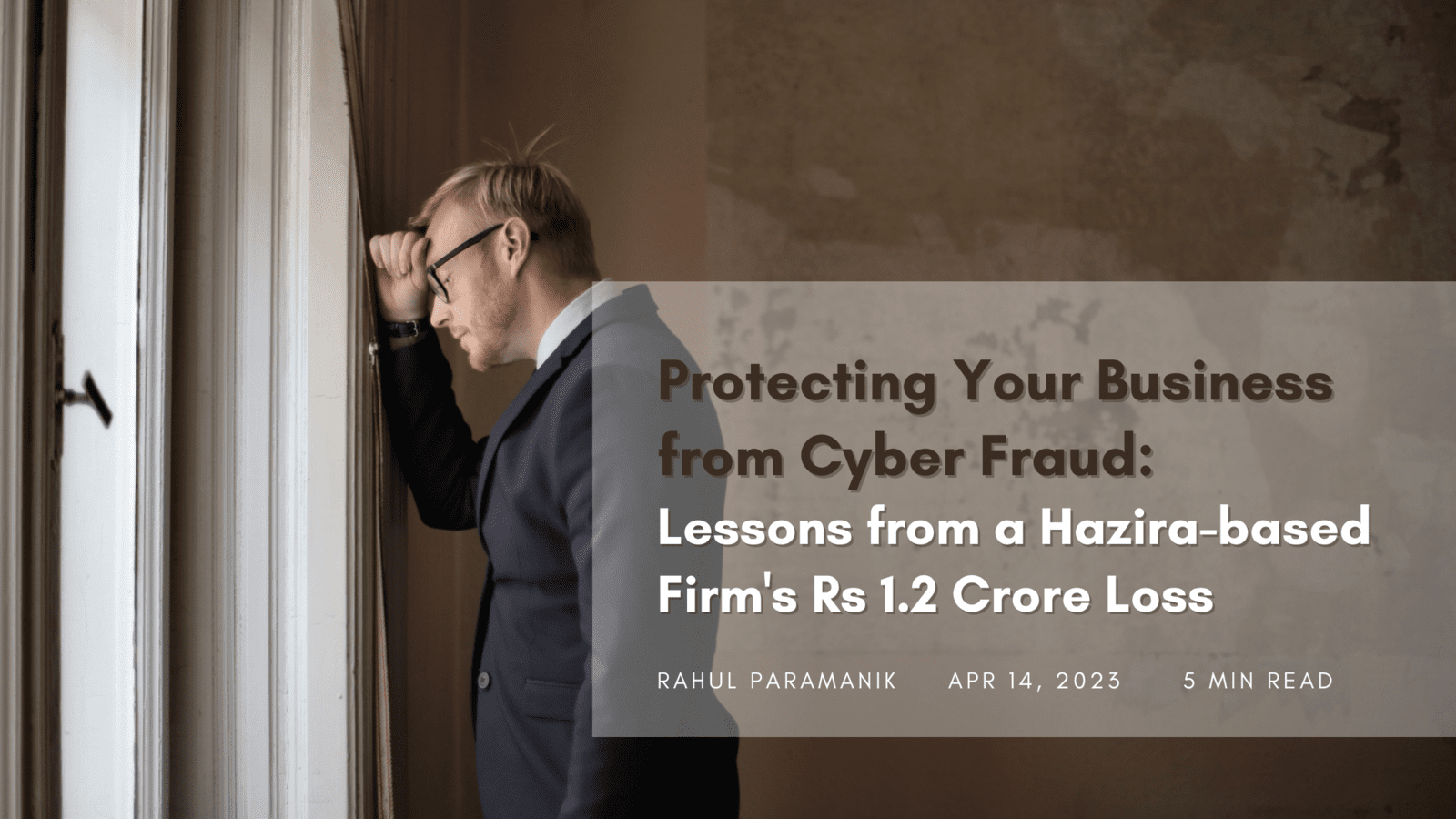
In today's digitally-driven world, cybercrime is becoming increasingly prevalent. The rise in online frauds and scams has been a major concern for individuals and businesses alike. One recent example of this is the Hazira-based firm that was duped of Rs 1.2 crore by cyber fraudsters.
The incident occurred when the firm received an email from what appeared to be their regular supplier, requesting payment for a large order of goods. The email looked legitimate, and the payment details seemed to align with their usual transactions. The firm, therefore, paid without suspecting anything was amiss.
However, soon after the payment was made, the firm realized that it had fallen victim to a sophisticated cyber scam. The email they had received was not from their regular supplier, but from fraudsters who had hacked into their email system and obtained confidential information about their suppliers and payment processes. They had used this information to create a fake email address and payment details, which were then used to dupe the firm out of a substantial amount of money.
The incident highlights the growing threat of cybercrime and the need for businesses to be vigilant and take adequate measures to protect themselves from such scams. Here are some steps that firms can take to protect themselves against cyber fraud:
Educate Employees :
One of the key steps that firms can take to protect themselves against cyber fraud is to educate their employees about the risks and best practices for online security. Employees should be trained to identify phishing emails, suspicious links, and other signs of cyber fraud. They should also be aware of the importance of strong passwords, two-factor authentication, and other security measures.
Implement Strong Password Policies :
Firms should enforce strong password policies to ensure that employees use unique and complex passwords for their accounts. Passwords should regularly be changed and should not be shared with anyone. Two-factor authentication should also be implemented for all accounts that contain sensitive information.
Keep Software Up-to-Date :
Software and systems should regularly be updated to ensure that any security vulnerabilities are patched. Firms should also ensure that they are using up-to-date antivirus software and firewalls to protect against malware and other cyber threats.
Verify Payment Details :
Whenever a payment is requested, firms should take the time to verify the authenticity of the request. They should contact the supplier directly through a known phone number or email address to confirm the details of the request before making any payments.
Secure Email Systems :
Email systems are often the target of cyber fraudsters, so it's important to take adequate measures to secure them. This includes using strong passwords, two-factor authentication, and email encryption. Firms should also monitor their email systems for suspicious activity and use email filters to block spam and phishing emails.
Conduct Regular Security Audits :
Regular security audits can help firms identify and address potential security risks. These audits should include a review of all systems and processes and an assessment of employee awareness and training.
Purchase Cyber Insurance :
Cyber insurance can provide financial protection in the event of a cyber-attack or data breach. Firms should consider purchasing a comprehensive cyber insurance policy that covers all potential risks and losses.
In conclusion, the Hazira-based firm's unfortunate experience highlights the importance of taking adequate measures to protect against cyber fraud. While it's impossible to eliminate all cyber risks, firms can take steps to minimize their exposure and protect themselves against potential losses. Educating employees, implementing strong password policies, keeping software up-to-date, verifying payment details, securing email systems, conducting regular security audits, and purchasing cyber insurance are all important steps that firms can take to protect themselves against cyber fraud. By taking these steps, firms can minimize their exposure to cyber threats and ensure they are better prepared to deal with potential incidents.

